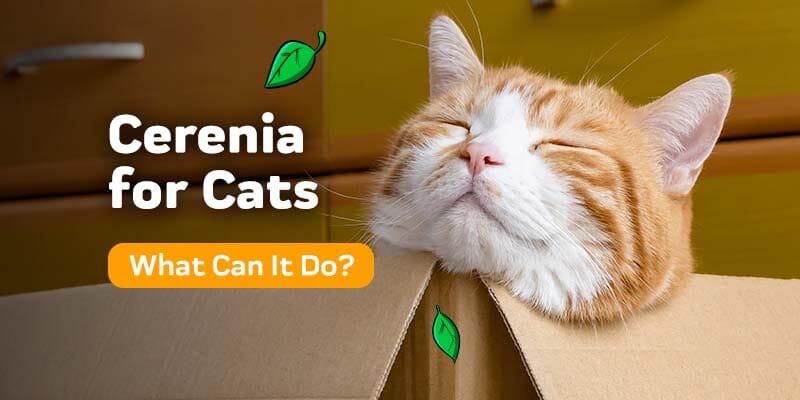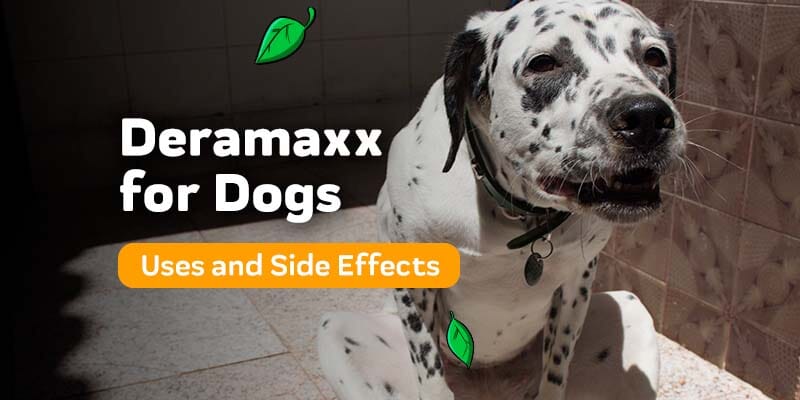
It’s often the case that when we find a medicine that works wonders for our health as pet owners, we wonder if we can give the same medication to our dogs.
If your dog is anything like mine, then they suffer from allergies just as much as any human does. The itchy eyes, runny nose, and constant sneezing can be a real pain for our furry friends. And just like us, our furry friends deal with allergies for the same reasons. You can blame it all on an overactive immune system and pesky allergy-causing histamine.
Luckily, there are a few things we can do to help relieve their suffering. One popular method is administering Claritin to your dog. The active ingredient loratadine in Claritin helps to block histamine receptors and provide relief from allergy symptoms.
- Can I Give My Dog Claritin?
- Mast Cell Tumors
- Claritin For Dogs
- Claritin Side Effects
- Claritin Overdose In Dogs
- Claritin For Dogs Dosage
- Natural Ways to Stop Allergic Reactions
- Alternatives To Claritin
- CBD Treatment
Claritin is a popular medication that many will want in their cabinets whenever the weather starts changing. One second your face is red and nose is clogged, but pop a Claritin, and you’re breathing deeply and ready for that summer marathon. Claritin is an antihistamine built to stop allergic reactions in humans.
Since allergies in dogs and humans are caused by the same issues, you may wonder if this medicine is safe for dogs. So let’s jump into this article and find out!
Can you give dogs Claritin, or the generic version, loratadine to treat allergies? Loratadine tablets and solutions should not be given to dogs allergic or sensitive to them. If your dog is suffering from allergies, you may be tempted to reach for the medicine cabinet and give them a dose of Claritin. However, it's important to remember that dogs are not small humans, and what works for us may not be safe for them.
You may wonder if it's safe to give your dog Claritin for allergies. The short answer is maybe, but you'll want to discuss the option with your veterinarian first. Some vets may prescribe the disintegrating tablets for dogs who have trouble swallowing pills.
It’s not that Claritin or Loratadine side effects are worse in dogs than humans or that it doesn’t work. Instead, you always want to be careful when you treat dog allergies with a drug formulated for humans.
Many prescription drugs are two-faced where they present low side effects until dosages move up to higher concentrations. When that happens, serious side effects seemingly blossom from nowhere.
Owners of big dogs like Mastiffs or Great Danes may not have to worry, but small pets are at risk for taking too much Loratadine
Always Talk to Your Vet
Now, you might be thinking that you can just do some math and cut the pill down to the appropriate size.
But cutting up pills can result in uneven dosages and is not recommended in veterinary treatment.
There is a bigger reason why you want to consult your veterinarian before giving your dog Loratadine. Age and medical history play an equal part along with weight in determining the correct dosage for your dog, so check your pup's full record before introducing new pills.
Unless you’re a vet or properly trained in veterinary medicine, treating allergies with medicine is too risky on your own.
Mast Cell Tumors
Above, we discussed the most common reasons people want to give their dogs Claritin. It can help relieve allergy symptoms in dogs suffering from running noses to watery eyes. However, they are a few other important reasons you may want to give your dog Claritin.
Mast cell tumors can cause deliberating inflammation symptoms that allows pain to course through the body resulting in an unfilled life. This is the last thing we want for our dogs, but fortunately, according to veterinary studies, Claritin for dogs can help as the symptoms of mast cell tumors closely mirror that of an allergic reaction.
Claritin For Dogs
Another reason pet parents always need to discuss giving Claritin to your dog with your vet is not all Claritin is safe - even in an appropriately-sized dose.
You should avoid giving Claritin-D to your dog as it contains pseudoephedrine. This chemical is pretty much always dangerous to your dog and can be lethal even with small doses (240mg).
Instead, you should only give your dog the plain Claritin formula or the children’s version.
Claritin Side Effects
Side effects are a natural result of pretty much everything you can consume — you just need a large enough dosage e.g. you can die from drinking milk and water.
But unlike food and drink, drugs pose side effects with much smaller dosages, and it’s easy to take or give too much. A drug like Claritin can even have side effects worse than the symptoms of allergies it is meant to treat.
Ingesting Claritin can cause vomiting, diarrhea, and lethargy in dogs. It can also cause drug interactions if your dog is taking other medications. If your canine is allergic to something he has ingested or insect bites, giving him Claritin will not help - and may even make things worse.
Be on the lookout for any of the following side effects if you give your dog Claritin:
- Behavioral issues
- Changes in bowel movements or problems urinating
- Changes in diet or increased thirst
- Confusion
- Drowsiness
- Dry Eyes
- Itchy Skin
- Dry Mouth
- Urinary Retention
- Vomiting
Claritin Overdose In Dogs
When administering the right versions of Claritin Loratadine in an appropriately-sized dosage for dogs, Claritin overdoses are extremely rare. You will be able to tell if you accidentally gave too much Claritin to your dog and you will need to seek immediate action to avoid them from having a stroke.
Using Claritin for dogs to have an enjoyable allergy season free of allergic reactions like watery eyes, itching skin, and a running nose can be safe and effective treatment options for allergies. However, like many medications, improper use can spell serious consequences for dogs and we don’t want to see anything bad happen to your little nugget.
As such, always consult your vet before starting your dog on any new veterinary-approved medication whether it’s Claritin, Apoquel, or another drug.
Claritin For Dogs Dosage
Before you give your dog Claritin, consult your vet for proper Claritin dosage instructions.
Dosage will be based on your dog's body weight and age.
The general rule of thumb is to prescribe 0.2mg of Claritin per pound of body weight. Claritin is given in tablet form and may be taken with food or on its own.
Generally, a Claritin tablet will have 10mg of active antihistamine
Your vet will come up with a tailored plan for your dog based on their allergies and symptoms. Before you talk to your veterinarian, understand how your dog experiences allergies, Claritin, and its associated side effects.
Claritin is an antihistamine that can help relieve dogs suffering from allergies caused by environmental triggers, such as pollen, mold, or dust mites. It can also be used to treat food allergies. Unlike Benadryl, which is one of the other antihistamines used to treat dogs with allergies, Claritin does not have the potential to cause drowsiness.
Natural Ways to Stop Allergic Reactions
There are a few natural and holistic ways to keep your dog from having an allergic reaction that does not involve Claritin for dogs, most of which involve removing contact with allergy-causing particulates.
Allergy symptoms are a pain and may cause sneezing, itchy skin, dermatitis, and other negative reactions.
But by just changing your dog's routine, you can make a difference in the severity of symptoms without a prescription for medicine or over-the-counter Claritin for dogs.
Take A Bath
Prevent environmental reactions by giving your dog a bath. Use a hypo-allergenic shampoo all over your dog's fur and body to literally remove an allergic reaction at the source by scrubbing away pollen, dust, and dander.
Clean Regularly
Cleaning your house will stop the allergies your dog tracks in after a walk. Installing an air filter may also provide relief from sneezing and itchy throats. Environmental adjustments counter allergy symptoms more long term than medications.
If your home is allergy-free then dogs will have relief from their allergic reactions.
Change Diet
Dogs need fatty acids like omega-3 or omega-6 to help fight allergy symptoms. Fish oil and coconut oil have both been shown to reduce itching and sneezing in dogs. Talk to your veterinarian about the best food to support a strong immune system without medicine.
Be sure to get your dog fresh water at least once a day to be sure it is uncontaminated by any contact with environmental particulates.

Alternatives To Claritin
There are also other medications besides Claritin for dogs that can treat allergies.
Benadryl
Your vet may prescribe Benadryl tablets for your dog which also does contain the active ingredient of antihistamines.
While side effects like vomiting have been reported in some animals, in general, this medication filled with antihistamines is a widely prescribed veterinary treatment to relieve allergies.
Zyrtec
Another antihistamine veterinarians may recommend for your dog is Zyrtec. A Zyrtec tablet is usually treating dermatitis and other skin allergies like itchy skin.
Veterinarians report few side effects but do warn of extreme lethargy in your pet.
At Innovet Pet, it’s our goal to keep you updated on pet health so your pet can have a dynamic, fulfilling, and healthy life. As such, whenever we talk about the pros and cons of a specific medication, we like to give you an alternative option from veterinarians, so you have the information you need.
One of our favorite veterinarian-approved alternatives to Claritin and other tablets that contain antihistamines is CBD oil. CBD works naturally with one of your pet’s major regulatory systems and can help calm down an overactive immune system that's easily triggered by pollen, dust, and other allergy symptoms.
The medical world and veterinary medicine have recently begun to embrace CBD as a reputable alternative healing method.
Relieve Pain And Fight Histamine
CBD has a harmonious relationship with this regulatory and balancing system - veterinary research shows CBD can reinforce and extend its therapeutic reach in your pet. Owners of animals taking CBD have reported lowered inflammation and an increase in overall well-being during allergy season without taking antihistamines.
Low Risk
Even better, comprehensive veterinary studies show CBD is very low risk - this is something we always want for an alternative medication. There is no need to worry about dosage or overdoses as unlike medications, pets cannot overdose on CBD. However, always consult your veterinarian about the precise dosage for your animal.
Another reason it’s a nice alternative to Claritin is CBD is easy to give with or without food, plus you can give it without a prescription. And if you’ve ever tried to regularly give your dog medicine before, you know how much of a blessing this is. CBD comes in tinctures, capsules, and easy to give treats.
CBD Treats
For the pickiest eaters, we recommend our Hemp CBD Treats or Soft Chews, small bites which will leave your dog drooling.
CBD Treatment
When you give your dog CBD treats they will think they are being spoiled but, really you are being a responsible pet parent and keeping your little one healthy and happy! In the end, it is up to you to provide the proper therapy to give your dog a long and comfortable life.
Sources:
 Ivana Vukasinovic grew up in Serbia and attended the University of Belgrade where she received a degree in Veterinary medicine in 2012 and later completed surgical residency working mostly with livestock. Her first year of practice was split between busy small animal practice and emergency clinic, and after two more years of treating many different species of animals, she opened her own veterinary pharmacy where an interest in canine and feline nutrition emerged with an accent on fighting animal obesity. In her free time, she acts as a foster parent for stray animals before their adoption, likes to read SF books and making salted caramel cookies.
Ivana Vukasinovic grew up in Serbia and attended the University of Belgrade where she received a degree in Veterinary medicine in 2012 and later completed surgical residency working mostly with livestock. Her first year of practice was split between busy small animal practice and emergency clinic, and after two more years of treating many different species of animals, she opened her own veterinary pharmacy where an interest in canine and feline nutrition emerged with an accent on fighting animal obesity. In her free time, she acts as a foster parent for stray animals before their adoption, likes to read SF books and making salted caramel cookies.
Thanks for stopping by!
P.S. We Love You!
Sincerely,
The Innovet Team
Please do not ask for emergency or specific medical questions about your pets in the comments. Innovet Pet Products is unable to provide you with specific medical advice or counseling. A detailed physical exam, patient history, and an established veterinarian are required to provide specific medical advice. If you are worried that your pet requires emergency attention or if you have specific medical questions related to your pet’s current or chronic health conditions, please contact or visit your local/preferred veterinarian, an animal-specific poison control hotline, or your local emergency veterinary care center.
Please share your experiences and stories, your opinions and feedback about this blog, or what you've learned that you'd like to share with others.

















